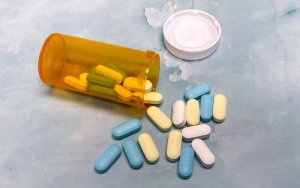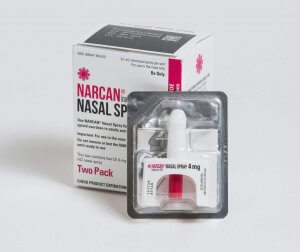Parenting Advice from a Scotch Plains NJ Therapist
The teenage years can be turbulent and overwhelming for parents. Your child feels ready for new responsibilities and freedoms, but you’re worried that they don’t always make the most responsible decisions. As your teen goes to parties, starts dating, and takes on the pressure of considering higher education or a career step after high school, they will likely also be encountering recreational drug use among their peers. Talking to a teenager about the dangers of overdose and counterfeit opioids is a crucial conversation that can be nerve wracking for parents, but clear and supportive guidance can potentially save lives.
Start with an Open Dialogue
Creating an environment where your teenager feels comfortable discussing sensitive topics is the first step. Choose a calm and private setting to initiate the conversation. Avoid a confrontational tone; instead, approach the discussion with empathy and understanding. You might begin by asking what they know about opioids and overdoses, which can help gauge their level of awareness and dispel any myths or misinformation.
Educate your Teen about the Risks of Overdose
Sometimes parents can worry that introducing difficult topics can ‘put ideas’ into their child’s head. It is a loving impulse, to want to protect your child’s innocence. However, remaining uninformed also leaves your child vulnerable to misinformation and harm. Getting ahead of the conversation by introducing it yourself and giving your child essential information can help equip them with the tools they need to make safe decisions.
To do this, first explain what opioids are, including both prescription medications and illegal drugs like heroin. Highlight that opioids, even when prescribed, carry a high risk of addiction and overdose. Discuss how counterfeit drugs (including counterfeit opioids, counterfeit Ritalin, and more) are often laced with dangerous substances like fentanyl, which is significantly more potent and can be lethal even in tiny amounts. Use real-life examples. Ask them if they know someone who has been affected by opioid use or abuse. Share statistics to underscore the risks, but be careful not to overwhelm them with fear. The goal is to inform and empower them to make safe choices, while also listening to what they may already know on the topic.
Highlight the Signs of Overdose
Educate your teenager about the signs of an overdose, such as slowed breathing, extreme drowsiness, and unresponsiveness. Stress the importance of calling 911 immediately if they suspect someone is overdosing. Many teens fear getting into trouble if they seek help in such situations. Reassure them that their safety and the safety of others are the top priorities, and explain that Good Samaritan laws that protect individuals who call for help during an overdose situation. New Jersey recently enacted the Overdose Prevention Act which specifically provides immunity againstcommon possession charges to those seeking to aid someone who is overdosing.
Discuss Social Media And Peer Pressure

Emphasize the Importance of Open Communication
Reiterate that they can always talk to you about anything, no matter how difficult the topic. Building a foundation of trust is key to ensuring that your teenager feels safe coming to you if they find themselves in a precarious situation. Regular check-ins can help keep the lines of communication open and demonstrate that you care about their well-being. Try not to react negatively when they open up to you. Do more listening than you do speaking.
Provide Resources and Support
Let your teenager know that they are not alone and that there are resources available if they or someone they know is struggling with substance use. Provide information about local support groups, counseling services, and hotlines. Make sure they know they can come to you with any concerns or questions without fear of judgment or punishment.
Discuss The Benefits Of A Safety Plan, Including Naloxone (Narcan)
Talk to your teen about what they should do if they suspect they or someonethey know has been exposed to opioids and is at risk of overdose. Keep Naloxone (Narcan) on hand in your home. Naloxone is an opioid antagonist that can rapidly reverse an overdose if administered promptly. Ensure all household members know where it is stored and how to use it. You can get Naloxone for free at participating pharmacies in New Jersey. Have emergency contact numbers readily available, including poison control (1-800-222-1222 in the United States) and local emergency services.
Talking to your teenager about the dangers of overdose and counterfeit opioids is a delicate but necessary task. By fostering an open, non-judgmental dialogue, providing accurate information, and offering ongoing support, you can help your teen navigate these challenges more safely. Remember, the goal is to empower them with the knowledge and resources they need to make informed decisions and stay safe.
Begin Parenting Counseling in Scotch Plains, NJ
At Brave Minds Psychological Services, we understand that every parenting journey comes with its own unique set of challenges. Our team of compassionate therapists is here to support all parents as they work to foster healthy relationships with their children, overcome obstacles, and build resilience. We offer a safe, compassionate space to explore your concerns, develop effective strategies, and find the balance and confidence you need to thrive as a parent. Start your therapy journey with Brave Minds Psychological Services by following these simple steps:
- Contact Brave Minds Psychological Services for a free consultation
- Meet with a caring therapist
- Help your child move forward with their brave, beautiful life.
More Than Just Parent Coaching
Brave Minds Psychological Services is pleased to offer more than just parenting help. Our dedicated team provides a wide range of mental health services for adults, teens, and children. This includes therapy for postpartum concerns, food allergy-related anxiety, EMDR therapy, and more. Services are available both in person at our Scotch Plains and Branchburg, NJ offices and through telehealth counseling for residents across New Jersey.






